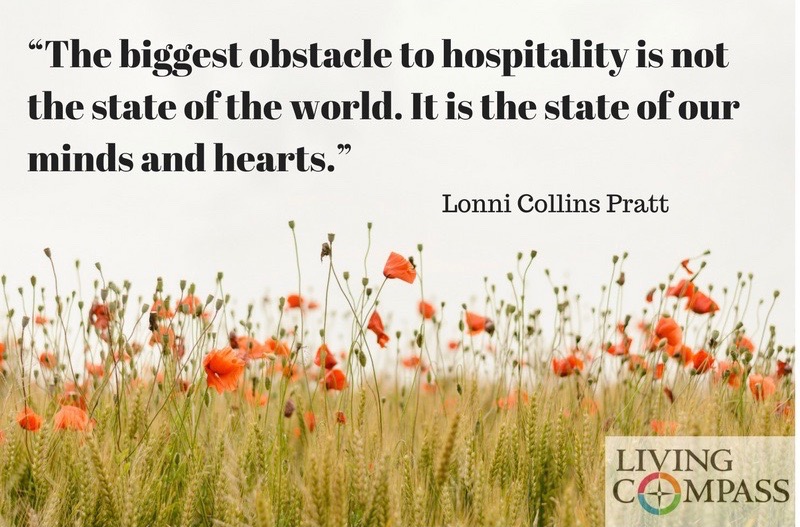In honor of St. Patrick’s Day, here are a few of my favorite Irish sayings: May the wind be always at your back.
May you have the hindsight to know where you’ve been, the foresight to know where you are going, and the insight to know when you have gone too far.
You’ve got to do your own growing, no matter how tall your parents were
A good laugh and a long sleep are the two best cures.
It’s easy to halve the potato where there’s love.
A little fire that warms is better than a big fire that burns.
Your feet will bring you where your heart is.
You’ll never plow a field by turning it over in your mind.
And here’s my favorite one of all:
It is in the shelter of each other that the people live.
There are many ways we can provide for one another the kind of shelter this favorite saying of mine describes. We can provide shelter by genuinely listening to one another, or by just being present to a person, not trying to change or fix them. We can also provide shelter to each other by simply offering any or all of the following: compassion, love, patience, forgiveness, acceptance, and gratitude. It’s as easy as that, and as hard as that.
In addition to their witty sayings and proverbs, the Irish are also well known for their collection of blessings. Type “Irish Blessing” in a Google search, and you will find hundreds of examples. Even if you are not Irish yourself, you likely are already familiar with several of these blessings. Offering someone your blessing is another way we can provide emotional and spiritual shelter for them to live within.
One way I know about a blessing’s power to provide shelter is because of how many times I have heard stories about the opposite, when a blessing is withheld. In my counseling work, I have heard stories of great sadness when a person shared how a significant person in their life—a parent, grandparent, boss, close friend—did not bless the person they were or an important decision they had made. “It has always been painful for me that I did hot have my _______’s blessing,” is almost always said with tears in their eyes.
On the other hand, something very different happens when a person tells a story of how much it means to them to have received the blessing of a significant person in their life. Their eyes sparkle with joy, and their face lights up as they share their story of being blessed. To be blessed by someone is to experience the shelter of their unconditional love and positive regard. It means they have our back and want the best for us.
There are indeed many ways to recognize St. Patrick’s Day. This year, I invite you to join me in celebrating it by remembering to be a blessing, and to offer freely and regularly our blessings to friends, families, and neighbors.
I also invite you to share your favorite Irish saying or blessing with me by replying to this email.
Now I close with one beautiful Irish blessing, one that speaks to the many kinds of shelter we can, in fact, offer to one another when we are generous and loving
May you always have
Walls for the winds
A roof for the rain
Tea beside the fire
Laughter to cheer you
Those you love near you
And all your heart might desire.
Subscribe Now to Weekly Words of Wellness:
Click the button below to signup for the e-mail version of Weekly Words of Wellness. This weekly article can be shared with your community electronically and/or used for group discussion.
You can unsubscribe at any time.

